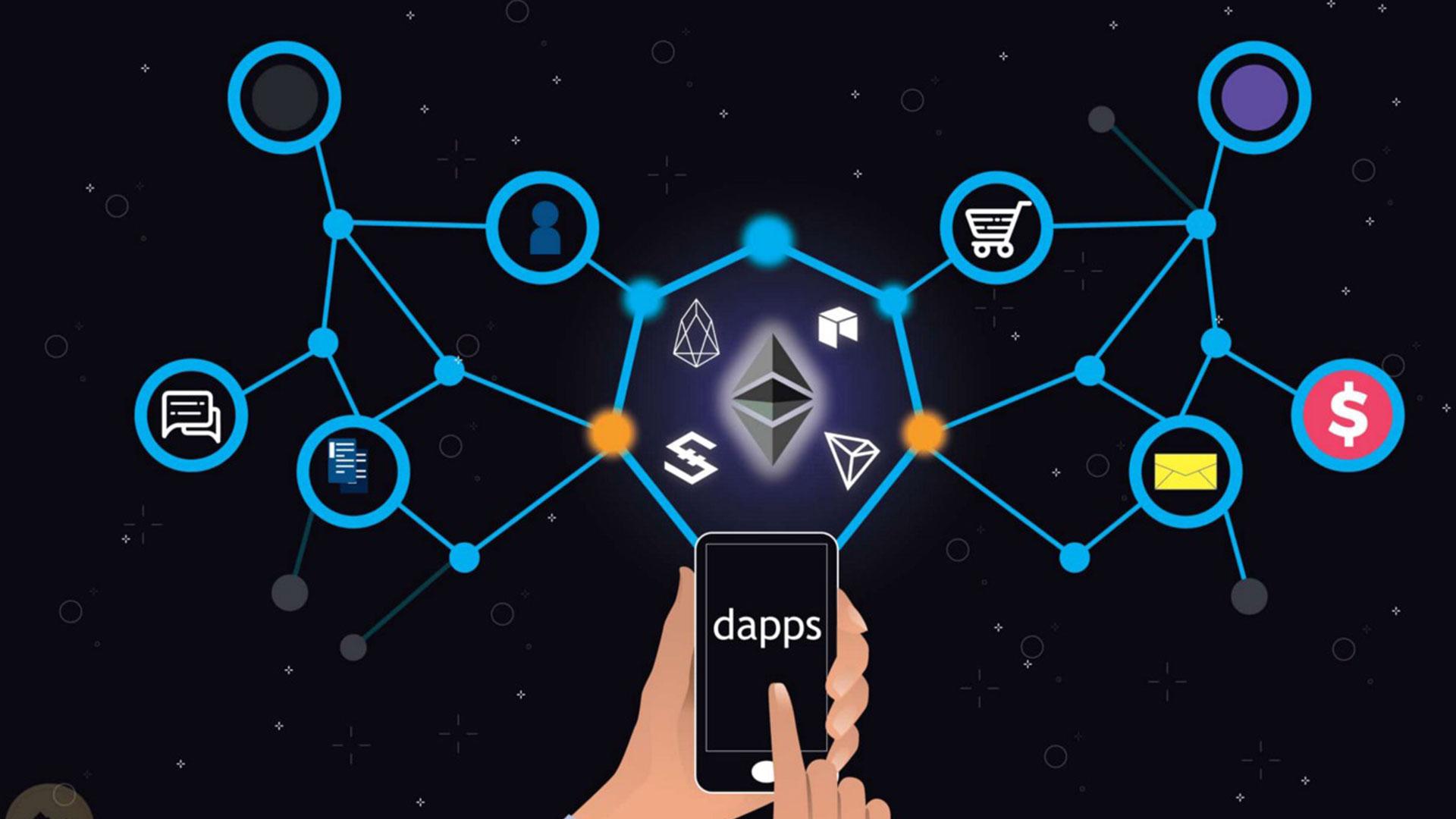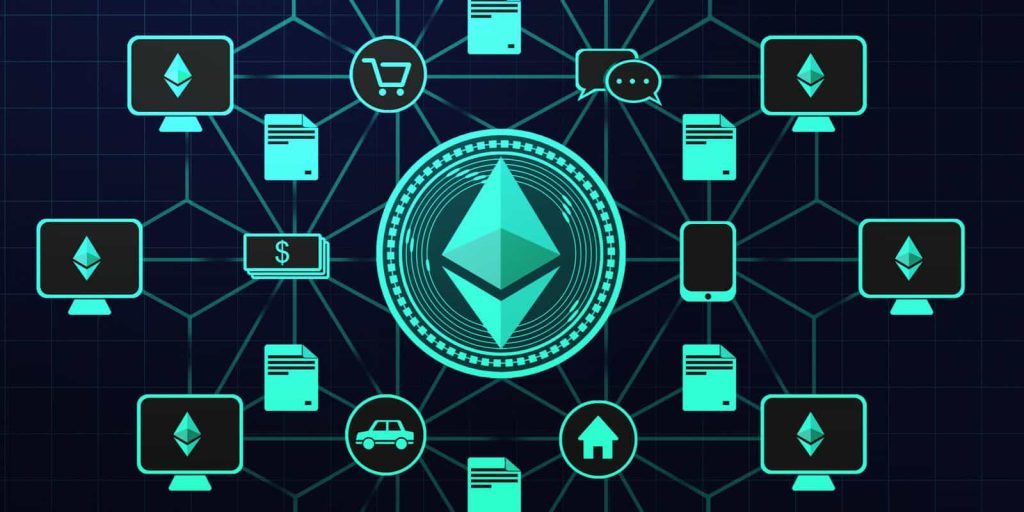
James Carter
How to Use Decentralized Apps?: A Comprehensive Guide

Decentralized apps, also known as DApps, have emerged as a revolutionary concept in the technological landscape. Built on blockchain technology, these apps offer enhanced security, privacy, and transparency compared to traditional centralized apps. In this article, we will delve into the world of decentralized apps and provide you with a step-by-step guide on how to use them effectively.
Understanding Decentralized Apps
Before diving into the practical aspects, it is crucial to grasp the fundamentals of decentralized applications. At its core, a decentralized app operates on a blockchain network, which is a distributed and immutable ledger that ensures transparency and removes the need for a central authority. The key characteristics of decentralized applications include:
Peer-to-Peer Architecture: Unlike traditional apps, decentralized apps operate on a peer-to-peer network, where users interact directly with each other without intermediaries.
Data Security and Privacy: Decentralized apps leverage cryptography to secure user data and ensure privacy. The use of blockchain technology enhances data integrity and reduces the risk of unauthorized access.
Tokenization and Incentives: Many decentralized apps incorporate native tokens or cryptocurrencies that facilitate transactions and incentivize users to contribute to the network.

Getting Started with Decentralized Apps
To begin using decentralized apps, follow these essential steps:
Before you can access decentralized apps, you need to select a suitable platform or blockchain network. Ethereum, Binance Smart Chain, and Polkadot are popular choices, each with its own set of advantages and supported applications.
Setting Up a Digital Wallet:
To interact with decentralized apps, you’ll need a digital wallet. Wallets come in different forms, including web-based, desktop, mobile, or hardware options. Ensure your chosen wallet is compatible with the blockchain network you have selected.
Securing Your Private Keys:
Private keys are cryptographic codes that grant access to your digital assets. It is crucial to keep them secure and never share them with anyone. Consider using hardware wallets for enhanced security.
Exploring Decentralized App Categories
Decentralized apps cover a wide range of categories. Let’s explore some popular ones:
Finance and Cryptocurrency:
Decentralized finance (DeFi) has gained significant traction in recent years. DApps in this category include decentralized exchanges (DEXs), lending platforms, yield farming protocols, and stablecoin issuers. These apps enable you to trade, lend, borrow, and earn interest on your cryptocurrencies without relying on traditional intermediaries.
Social Networking:
Decentralized social media platforms offer an alternative to centralized platforms that often collect and monetize user data. DApps in this category prioritize privacy, content ownership, and censorship resistance. Examples include platforms like Minds, Peepeth, and Mastodon.
Gaming and Entertainment:
DApps have disrupted the gaming and entertainment industry by providing decentralized alternatives. These apps utilize blockchain technology to create unique gaming experiences, enable ownership of in-game assets, and foster peer-to-peer interactions. Popular gaming DApps include Axie Infinity, CryptoKitties, and Decentraland.
Navigating Decentralized App Interfaces
Decentralized app interfaces may vary depending on the platform or blockchain network. Here are some common elements and interactions to be familiar with:
Understanding Decentralized App Interfaces:
DApp interfaces typically consist of dashboards, menus, and transaction history sections. Familiarize yourself with these elements to navigate the app effectively.
Interacting with Smart Contracts:
Smart contracts are self-executing contracts with predefined rules encoded on the blockchain. DApps utilize smart contracts to automate transactions and enforce agreements. When interacting with decentralized apps, you may encounter smart contracts that govern various functionalities. These contracts define the rules of engagement, such as token transfers, rewards distribution, or automated processes within the app.
To interact with a smart contract, you will need to initiate transactions through your digital wallet. This typically involves specifying the type of transaction you want to execute, the amount of tokens or assets involved, and any additional parameters required by the smart contract.
Executing Transactions and Performing Actions:
Decentralized apps allow users to perform various actions, such as buying or selling tokens, staking assets, participating in governance decisions, or contributing to liquidity pools. These actions are executed through transactions, which are recorded on the blockchain and can be viewed by anyone.
When initiating a transaction, you will specify the recipient’s address, the amount or value to be transferred, and any additional data required by the specific action. Ensure that you review the transaction details carefully before confirming the transaction, as blockchain transactions are irreversible.
Ensuring Security and Privacy
Security and privacy are critical considerations when using decentralized apps. Here are some important steps to take:
Verifying App Authenticity and Reputation:
Due to the open nature of blockchain, anyone can create decentralized apps. It’s essential to verify the authenticity and reputation of the app before interacting with it. Check for reviews, community feedback, and developer information to ensure you’re using a trusted and reliable app.
Safeguarding Personal Data and Information:
While decentralized apps offer improved privacy compared to centralized counterparts, it’s still important to be cautious with the personal data you provide. Avoid sharing sensitive information unnecessarily and be mindful of the permissions you grant to the app. Always prioritize apps that respect user privacy and data protection.
Recognizing and Avoiding Scams or Malicious Apps:
The decentralized app space is not immune to scams and malicious actors. Exercise caution when engaging with unfamiliar apps, especially those promising high returns or requesting excessive permissions. Research the app, its developers, and community feedback to minimize the risk of falling victim to fraudulent schemes.
WATCH THE VIDEO BELOW
Staying Updated and Engaged
To make the most of decentralized apps, it’s also essential to stay informed and engaged within the community. Here’s how:
Following Decentralized App Communities and Forums:
Join online communities, forums, and social media channels dedicated to decentralized apps. These platforms provide valuable insights, updates, and discussions related to specific apps or the broader ecosystem. Participate actively, ask questions, and share experiences to learn from and contribute to the community.
Participating in Decentralized App Governance:
Some decentralized apps allow users to participate in the decision-making process through governance mechanisms. These mechanisms can involve voting on proposed changes, suggesting improvements, or even submitting and reviewing smart contracts. By actively participating in governance, you can have a voice in shaping the future of the app and the ecosystem it operates in.
Contributing to the Development of Decentralized Apps:
If you have the necessary skills and expertise, consider contributing to the development of decentralized apps. Many open-source projects welcome contributions, ranging from code development and bug fixes to documentation and community support. By contributing, you not only enhance your knowledge but also help advance the overall quality and adoption of decentralized apps.
Summary
Decentralized apps have the potential to transform how we interact with technology, providing greater control, privacy, and transparency. By following the steps outlined in this guide and staying engaged with the decentralized app ecosystem, you can harness the power of blockchain technology and explore the myriad possibilities offered by decentralized apps.
Remember, always prioritize security, verify app authenticity, and exercise caution when interacting with unfamiliar apps. Embrace the decentralized revolution and be part of the journey towards a more transparent and decentralized future.
Latest
Blockchain
09 May 2024
Blockchain
19 Apr 2024
Blockchain
16 Jan 2024
Blockchain
31 Aug 2023
Blockchain
24 Jun 2023
Blockchain
24 Jun 2023













